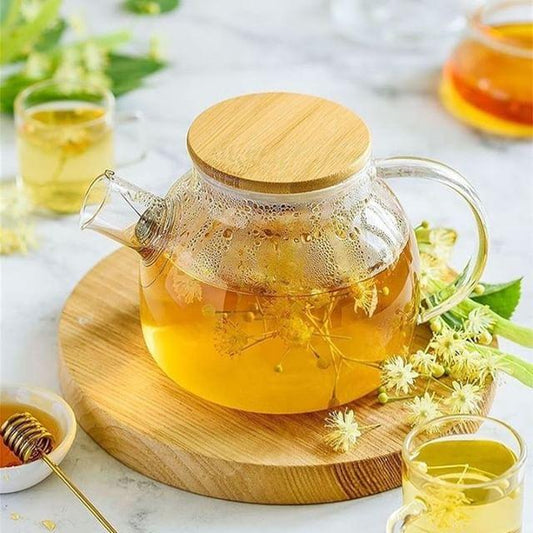Decoding Sugar Alternatives: Which Sweeteners Are Best for You?

As our awareness of sugar’s impact on health grows, the quest for alternatives has become more significant than ever. From natural sweeteners to artificial substitutes, each option offers unique benefits and characteristics. This guide delves deeper into the world of sugar alternatives, providing insights into their origins, health implications, and practical uses.
1. Natural Sweeteners: Nature’s Gift of Sweetness
Derived directly from plants or natural sources, these sweeteners undergo minimal processing and often come with additional health benefits.
Honey
- Origins: Produced by bees from flower nectar.
- Key Nutrients: Antioxidants, trace minerals like potassium and zinc, and antimicrobial properties.
- Pros: Supports immunity, aids digestion, and adds moisture to recipes.
- Best Uses: Ideal for tea, marinades, dressings, and baked goods.
- Cautions: High in calories and not suitable for infants under 1 year due to the risk of botulism.
Maple Syrup
- Origins: Extracted from the sap of sugar maple trees.
- Key Nutrients: Contains manganese, zinc, and antioxidants.
- Pros: Offers a deep, caramel-like flavor.
- Best Uses: Perfect for pancakes, oatmeal, roasted vegetables, and desserts.
- Cautions: Still calorie-dense and should be used sparingly.
Coconut Sugar
- Origins: Made from the sap of coconut palm trees.
- Key Nutrients: Low glycemic index and contains trace minerals like iron and magnesium.
- Pros: Mild caramel flavor, works as a 1:1 substitute for regular sugar.
- Best Uses: Works well in coffee, baked goods, and sauces.
- Cautions: Similar calorie content to table sugar.
2. Artificial Sweeteners: Chemistry in Your Cup
Designed for those seeking calorie-free sweetness, artificial sweeteners are intensely sweet and versatile.
Aspartame
- Origins: A compound made from amino acids phenylalanine and aspartic acid.
- Caloric Value: Virtually zero, as very small amounts are needed.
- Pros: Extensively researched and widely approved by regulatory agencies.
- Best Uses: Ideal for beverages, yogurt, and sugar-free desserts.
- Cautions: Avoid if you have phenylketonuria (PKU).
Sucralose
- Origins: Made by modifying sucrose (table sugar).
- Caloric Value: Calorie-free.
- Pros: Heat-stable, making it ideal for cooking and baking.
- Best Uses: Suitable for baked goods, sauces, and drinks.
- Cautions: Some research suggests it may alter gut bacteria with excessive use.
Saccharin
- Origins: Discovered in the late 19th century, derived from coal tar (modern production uses safer methods).
- Caloric Value: Zero calories.
- Pros: Long shelf life and strong sweetness.
- Best Uses: Suitable for beverages and long-lasting food products.
- Cautions: Some people detect a bitter aftertaste.
3. Sugar Alcohols: The Sweet Middle Ground
These naturally occurring compounds are derived from plant fibers and offer sweetness with fewer calories.
Xylitol
- Origins: Found in birch trees and various fruits.
- Caloric Value: 2.4 calories per gram (less than sugar).
- Pros: Protects against cavities and is a good sugar replacement in baked goods.
- Best Uses: Sugar-free gum, candies, and baking.
- Cautions: Can cause digestive discomfort in high quantities; toxic to dogs.
Erythritol
- Origins: Naturally occurs in certain fruits; typically fermented from corn.
- Caloric Value: Almost zero calories.
- Pros: Gentle on the digestive system and doesn’t spike blood sugar.
- Best Uses: Sweetening beverages, desserts, and keto recipes.
- Cautions: May cause a cooling sensation in the mouth for some.
4. Zero-Calorie Natural Sweeteners: Sweet Without the Guilt
Derived from plants, these alternatives are perfect for those focused on calorie control and natural products.
Stevia
- Origins: Extracted from the leaves of the stevia plant.
- Caloric Value: Zero calories.
- Pros: Natural, low-glycemic, and highly concentrated.
- Best Uses: Ideal for tea, coffee, and smoothies. Can be used in baking with adjustments.
- Cautions: Some find it leaves a licorice-like aftertaste.
Monk Fruit Sweetener
- Origins: Derived from monk fruit, native to Southeast Asia.
- Caloric Value: Zero calories.
- Pros: Heat-stable with no aftertaste, making it a versatile sugar substitute.
- Best Uses: Sweetening beverages, sauces, and desserts.
- Cautions: Often blended with other sweeteners like erythritol, so check labels.
5. Specialty Sweeteners: Exploring Unique Options
Looking for something different? These alternatives bring distinctive flavors and textures.
- Date Syrup: High in antioxidants, this thick syrup is excellent for drizzling over pancakes or adding to baked goods.
- Blackstrap Molasses: Packed with iron and calcium, it’s a robust sweetener for marinades or rich baked goods.
- Agave Nectar: A vegan-friendly option, agave is sweeter than sugar but higher in fructose, which may impact metabolism.
How to Choose the Best Sweetener for You
-
Health Goals:
- Opt for stevia or erythritol if managing blood sugar.
- Choose honey or maple syrup for added nutrients despite the calories.
-
Cooking Needs:
- Use sucralose for baking due to its heat stability.
- Coconut sugar is great for recipes requiring caramel notes.
-
Taste Preferences:
- Monk fruit offers a clean sweetness with no aftertaste.
- Stevia may not suit everyone due to its distinct flavor.
-
Special Dietary Concerns:
- Avoid xylitol if you have pets at home.
- Check for additives in artificial sweeteners.
Conclusion
The world of sugar alternatives is as diverse as our taste buds. Whether you're reducing calories, managing health conditions, or exploring new culinary horizons, there’s a sweetener to suit your needs. By experimenting with these options, you can find the perfect balance of flavor and health benefits for your lifestyle.
Share:





